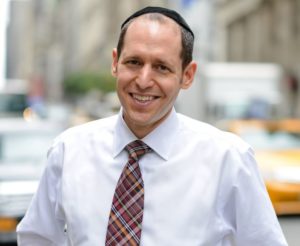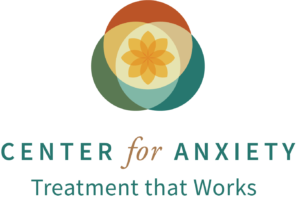 Question: With all of the recent traumatic events that are happening across the country, I can’t help but feel more stressed than usual. I check the news constantly and call my family and friends more frequently to make sure they are okay. I find it difficult to concentrate, and sometimes I have trouble falling asleep because I am worried what the next day may bring. What do you recommend?
Question: With all of the recent traumatic events that are happening across the country, I can’t help but feel more stressed than usual. I check the news constantly and call my family and friends more frequently to make sure they are okay. I find it difficult to concentrate, and sometimes I have trouble falling asleep because I am worried what the next day may bring. What do you recommend?
Signed,
Worried
—
Dear Worried,
Thank you for writing to our column. Yes, there have been many unexpected and tragic events that have occurred in recent months, especially violent ones. With the proliferation of news outlets it is now easier to access very descriptive and graphic accounts of these events than ever in history. In our office, we have seen people respond in many ways to the news of tragedy, including sadness, fear, anger, and of course worry. So, you are not alone in your experience – not at all. At the same time, your experience is unique based on your personal vulnerabilities, history, and values, and it is possible to live without significant worry even in this challenging time. Here are some tips that may be helpful to consider:
- Limit your exposure to the news: While it is important to be aware of what is happening in your community and the world, too much exposure can be detrimental. So unless you need it for your profession, why not limit the amount of time you are looking at the news to just once per day, or less. Will you truly miss out?,
- Be selective about your news sources: Flashy headlines attempt to draw readers in with extreme statements that capitalize upon doom and gloom. Also some news sources will be biased, so they might not be providing an accurate picture of events. So, instead of skimming the headlines in search of the latest updates, stick with a select few reputable news sources that give you the information you need with less of the shock factor.
- Maintain routine: During periods of stress, it becomes even more important to retain a sense of normalcy and security wherever possible. This includes maintaining healthy eating and sleep habits, exercise, and leisure time. While we cannot control what happens in our environments at all times, being in control of our own behavior can help us feel more grounded.
- Relax: This can be an easy strategy, but one that we often forget to do or take for granted. Relaxation exercises can be oases in the midst of chaos. There are many different strategies to promote relaxation including reading, listening to music, meditation, deep breathing, progressive muscle relaxation, and guided imagery. These are helpful to practice on a regular basis right before bed, especially if this is the time of day that is most stressful for you. We often don’t realize that our bodies carry a tremendous amount of the stress we hold in our bodies, and proactive engagement in reducing our tension can help us feel better both physically and mentally.
- Look for solace: Remind yourself of the things that are positive and stable in your life, even if you may have difficulty identifying them. One of the reasons that Chazal instituted the practice of saying berachos throughout the day was to help us remember the good things we may take for granted. Rather than calling your family and friends to make sure they are okay, try to actually connect with them by asking them about things that make them happy and give them meaning. These strategies can remind you that while there are indeed negative things that happen in the world, they are not the only things upon which we should focus.
- Reach out: Sharing your feelings with others is another way to help lift the burden. In addition to speaking with a mentor, friend, or Rav, therapy can also be a valuable resource. A trained therapist will help assess for any related factors that may be present, such as Posttraumatic Stress Disorder. He or she may also give you some insights into why you are feeling this way. For example, you may find that there are certain news events that remind you of difficult times from your personal life. A therapist will also help develop an individualized plan to give you concrete tools for moving forward in spite of all the turmoil happening in the world.
All our best,
Center for Anxiety
 David H. Rosmarin, Ph.D., ABPP, is an Assistant Professor in the Department of Psychiatry at Harvard Medical School, part-time, and a board certified clinical psychologist. He also directs the Center for Anxiety, which has offices in Manhattan, Brooklyn, Monsey, and Boston. Rebecca Holczer, M.A. is a postdoctoral fellow at the Center for Anxiety’s Monsey office. She has received extensive training in the application of various Exposure therapies and Dialectical Behavior Therapy (DBT) to adolescents and adults experiencing anxiety, depression, chronic pain, and other disorders.
David H. Rosmarin, Ph.D., ABPP, is an Assistant Professor in the Department of Psychiatry at Harvard Medical School, part-time, and a board certified clinical psychologist. He also directs the Center for Anxiety, which has offices in Manhattan, Brooklyn, Monsey, and Boston. Rebecca Holczer, M.A. is a postdoctoral fellow at the Center for Anxiety’s Monsey office. She has received extensive training in the application of various Exposure therapies and Dialectical Behavior Therapy (DBT) to adolescents and adults experiencing anxiety, depression, chronic pain, and other disorders.
Readers are encouraged to write in their questions and concerns, and each month 1-2 letters will be published along with our responses. Submissions should be sent in via email to [email protected] with “Lakewood Scoop Question” in the Subject line of the message. To protect anonymity, names and other identifying details will be changed prior to publication. Questions are welcome about any topic related to mental health and treatment. We look forward to hearing from you!
